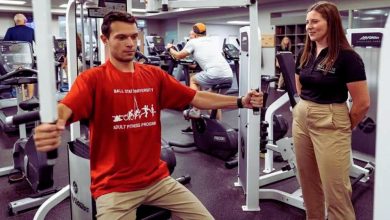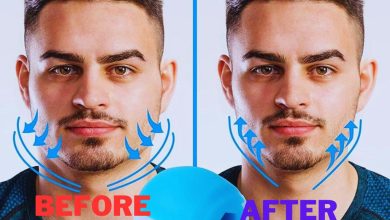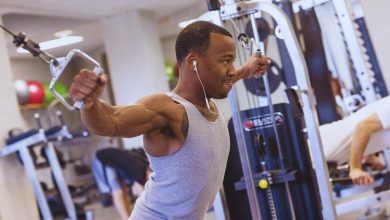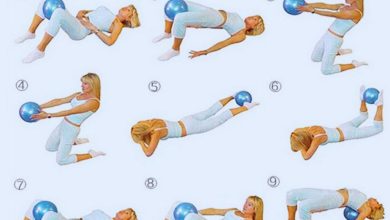Exploring High-Demand Exercise Science Jobs
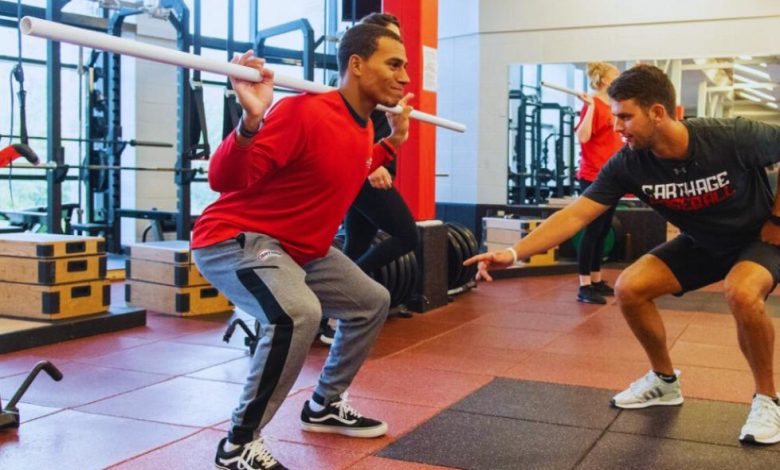
Introduction: Examining Demand for Exercise Science Jobs
Exercise Science Jobs are explosive! For individuals driven by health and fitness, this fascinating industry is expanding quicker than ever and has a great range of options. Let’s investigate the several routes you might follow with this flexible degree and go further into the field of exercise science professions.
Among the most obviously visible Exercise Science Jobs experts are personal trainers. Working one-on-one with clients, these fitness experts help them to reach particular health targets. They create customized exercise schedules, and correct forms, and offer inspiration. For individuals who enjoy socializing and seeing observable outcomes, it’s the ideal fit. Personal trainers can also launch their own companies or operate in a variety of locations, from upscale gyms to community centers!
Another fast-growing field in exercise science is physical therapy.
Helping clients heal from injuries or control chronic diseases, physical therapists are like body mechanics. Their healing method is exercise; they design customized programs to increase mobility and lower discomfort. Exercise Science Jobs Though this line of work calls for more education than a bachelor’s degree, it is quite fulfilling. Imagine allowing an elderly person to keep their independence or helping someone to walk once more following an injury!
From high school to the pros,
sports teams at all levels need exercise science professionals. Exercise Science Jobs Unassuming heroes behind sporting achievement are strength and conditioning coaches. Their training plans assist athletes in recuperating, improving performance, and preventing injuries. This work integrates human performance science with the thrills of sports. You might be the hidden weapon enabling a team to take the championship!
Wellness coordinators are much sought after in our era with ever more health consciousness. Exercise Science Jobs For companies, colleges, or community groups, these experts design and oversee health initiatives. This work calls for a combination of planning ability, exercise science understanding, and imagination. You might be planning company weight loss challenges, office yoga classes, or a school-wide wellness project. It’s all about building happier, better communities.
Exercise Science Jobs provides countless opportunities for those who enjoy challenging knowledge limits and posing questions. Studies on everything from how exercise influences mental health to creating fresh remedies for chronic ailments are undertaken by Exercise Science Jobs. Studying how to keep astronauts fit in zero gravity, you might work for NASA, a sports performance venue, or a university lab. Curious brains eager to add to the increasing corpus of scientific knowledge will find ideal employment in this field.
Medical professionals depend much on cardiac rehabilitation experts. Exercise Science Jobs They treat individuals living with cardiac problems, recovering from operations, or heart attacks. This position deftly combines workout experience with medical knowledge. You would create sensible, efficient workout regimens to enable patients to rebuild confidence and strength. This is a quite fulfilling profession that helps heal shattered hearts!
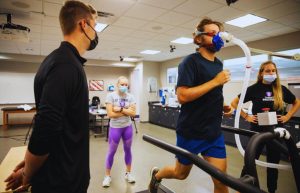
If you excel in business and leadership, think about working as a fitness manager.
Exercise Science Jobs runs the show out of wellness centers, health clubs, and gyms. Exercise Science Jobs They manage finances and personnel hiring as well as guarantee member happiness and upkeep of equipment. For individuals who wish to combine their love of exercise with business sense, this is a perfect job. You would be setting conditions where exercise allows people to change their lives.
One fast-growing area of interest is health coaching.
Health coaches help customers increase their general wellness in addition to their physical fitness using a comprehensive approach. This can call for advice on diet, stress control, sleeping patterns, and more. If you appreciate developing long-term connections with customers and have an eye toward the whole picture of health, this is an excellent choice.
Using Exercise Science Jobs ideas, ergonomists help to make workplaces safer and more productive. They might design safer manual labor techniques, ergonomic office furniture, or training courses meant to prevent workplace injuries. This unusual path combines occupational health and safety with exercise science. It’s ideal for those who wish to enhance daily living in less conventional training environments.
The first line of defense against sports injuries is athletic trainers.
Working closely with athletes, they prevent, diagnose, and treat injuries. You could be working daily with athletes in training or on the sidelines at major events; this fast-paced job puts you exactly in the center of the action. For people who enjoy athletics and have an interest in injury prevention and recovery, this is the perfect job.
Exercise physiologists probe closely how the body reacts to physical exertion.
They might operate at high-performance sports facilities, clinics, or hospitals. This work includes data analysis, fitness evaluations, and the development of science-based workout plans. For individuals who enjoy the accuracy of laboratory work as well as the pragmatic features of exercise, it fits quite well.
Becoming a physical education teacher is a fulfilling route for people driven by learning. PE teachers help young people to see the value of fitness and wellness. Designing interesting courses that not only impart athletic skills but also inculcate lifetime healthy practices would be your responsibility. This line of work lets you significantly influence the next generations.
Biomechanists investigate human movement’s mechanics.
They might focus on making more successful sporting equipment, building better prosthetic limbs, or refining rehabilitation methods. Exercise science is combined in this intriguing field with engineering and physics. For individuals who want to challenge performance and recovery and find great fascination in the way the human body moves, it is ideal.
Directors of corporate fitness challenge themselves to raise general health levels.
They create and oversee wellness initiatives covering whole businesses. Setting up on-site fitness centers, planning health fairs, running wellness challenges, and tracking the results of these projects could all fall under here. For individuals hoping to significantly improve workplace health, it’s a fantastic position.
Regarding public health, graduates of exercise science can be quite important. Working for government agencies or non-profit groups, they might create community-wide fitness programs or shape health policies. This job lets you put your knowledge to use enhancing the health results for whole communities. You may be behind the next major public health initiative that starts an entire city humming!
Sports nutritionists mix knowledge of exercise science with dietary and nutritional experience. Using appropriate fuelling techniques, they enable athletes to maximize their performance. Making meal planning, teaching about supplements, and making sure athletes satisfy their dietary requirements for training and competition could all fall within this purview. It’s a fascinating field that closes the distance between nutrition science and exercise.
Instructors in outdoor fitness go outside the gym door.
They might host adventure fitness programs, guide trekking groups, or set up beach boot camps. Those who enjoy the outdoors and wish to enable others to enjoy the pleasures of outdoor fitness may find an ideal career path here. Your love of the vast outdoors would complement your understanding of exercise science.
The tech industry presents fascinating prospects for graduates in exercise science as well. Developers of fitness technologies design wearables, apps, and other digital tools to enable individuals to monitor and raise their level of fitness. This line of work blends user experience design and coding with an understanding of exercise science. For tech-savvy fitness fanatics who want to help develop personal health technologies going forward, it’s ideal.
Working with those with disabilities, a
dapted physical activity experts help to increase physical fitness and quality of life. They might create customized fitness regimens, modify sports to be inclusive, or operate in rehabilitation environments. This fulfilling vocation lets you significantly influence the lives of people who usually find it difficult to engage in physical Exercise Science Jobs.
In general:
Exercise science careers provide something for almost every interest and skill set in the wide spectrum. From practical professions like personal training and physical therapy to behind-the-scenes employment in research and technology development, the possibilities are almost limitless. These professions not only give employment in a field that is expanding but also the gratification of enabling individuals to enjoy better, happier lives.
There is an Exercise Science Jobs profession waiting for you regardless of your interests—sports performance, the science of movement, or public health improvement-driven motivation. As our knowledge of health and fitness develops, new disciplines are arising in the sector and it is always changing. Choosing a profession in Exercise Science Jobs not only means choosing a job but also a road of lifetime learning and a genuine impact on people’s lives.
In the field of exercise science, then, are you prepared to exercise your career muscles? Your ideal fit is out there among the numerous fascinating avenues you could pursue. Remember, in this sector one person at a time you are helping create a better world, not only launching a career. That is a workout worth perspiration for!
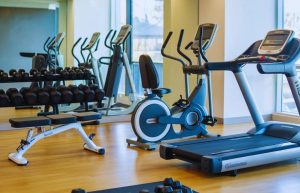
FAQ:
1. Does every career in exercise science call for a degree?
While some entry-level jobs like fitness teacher might just need credentials, most professional professions call at least a bachelor’s degree.
2. If I’m not particularly fit, can I still work in exercise science?
Perfect! Although personal fitness is crucial, in many positions knowledge and enthusiasm for the field take the front stage.
3. Among exercise science jobs, which pay the most?
Generally speaking, high-level researchers, physical therapists, and some corporate wellness directors make the most.
4. Are jobs in exercise science limited to gyms?
Not hardly at all! Opportunities abound in hospitals, colleges, research labs, business offices, sports teams, and even technology businesses.
5. With what speed is the area of exercise science expanding?
The Bureau of Labor Statistics projects a notable increase in numerous allied professions, so the field is developing faster than usual.
6. Could I work in exercise science and still travel?
Of course! Many careers, including those involving sports teams, as a traveling physical therapist, or running fitness retreats, call for plenty of travel.
7. Does employment in exercise science prove difficult?
Although there is intense competition for some roles, overall the employment picture is good because of the growing focus on preventative medicine.
8. For these roles, do I have to excel in science?
Stronger scientific knowledge is required for some positions than others. From more scientific research positions to more people-oriented coaching roles, there are choices for any interest.
9. Could I launch my own company armed with an exercise science degree?
Yes! Many former students launch health consulting companies, personal training businesses, or fitness product development.
10. Exercise science careers exist that do not directly involve patient care.
Definitely yes. Direct patient care is not commonly involved in roles in research, product development, management, and policy-making.
11. In what ways may ongoing education benefit exercise science professions?
Quite crucial! The field is always changing, hence most professionals acquire extra qualifications and participate in continuous education.
12. Can I focus on working with particular groups, such as the elderly or children?
indeed! Many practitioners of exercise science focus on working with specific groups, such as geriatric fitness experts or pediatric physical therapists.
13. Exist chances to mix other disciplines with exercise science?
Indeed! Depending on your interests, you might combine exercise science with disciplines such as psychology, nutrition, technology, or business.
14. How could professions in exercise science be affected by technology?
From applying cutting-edge tools in research to creating fitness apps, technology is becoming ever more crucial. Many jobs benefit from being tech-savvy.
15. Can a career in professional sports follow exercise science?
Indeed! Exercise scientists are hired by many professional sports teams as trainers, performance analysts, or strength coaches.
